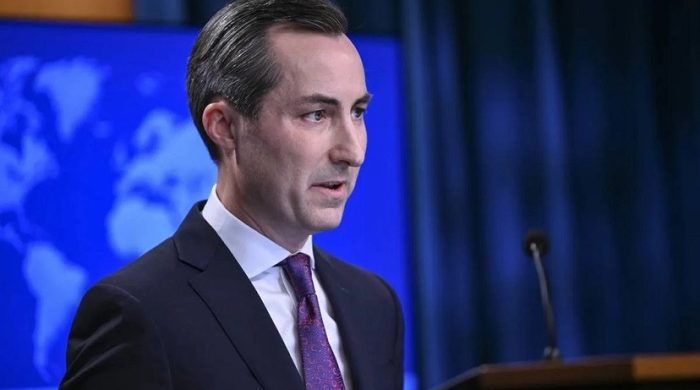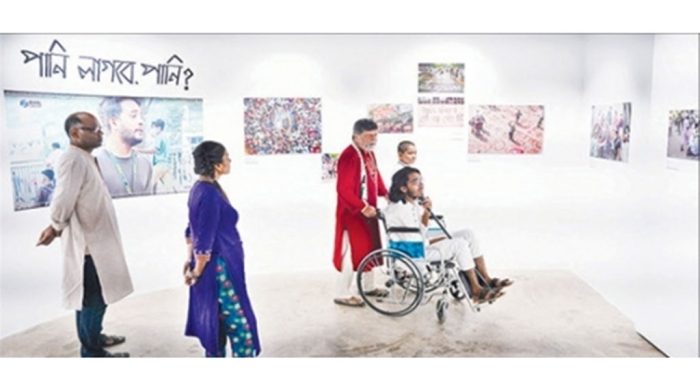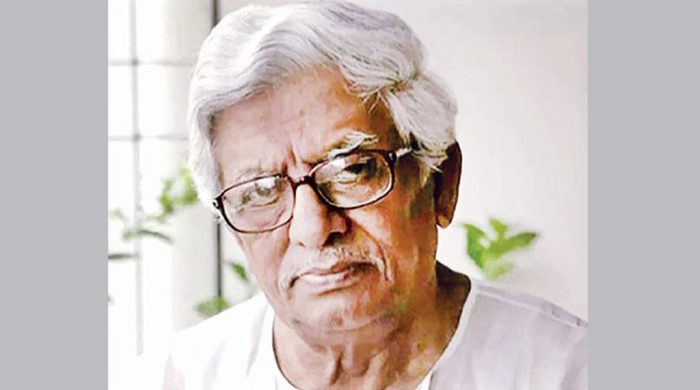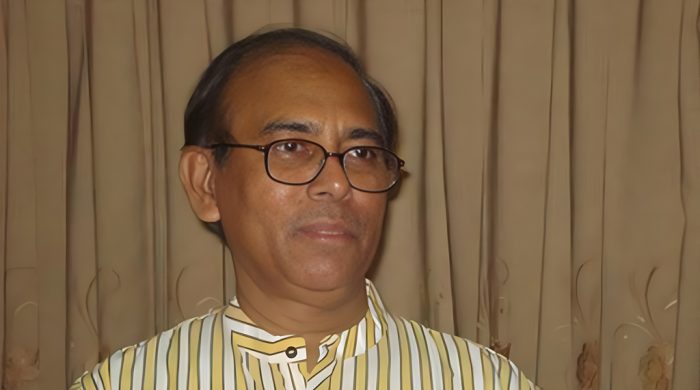Zimbabwean writer, Americans on diverse Booker Prize list

- Update Time : Thursday, September 17, 2020
- 176 Time View

A Zimbabwean writer who was arrested during anti-government protests is among six finalists announced Tuesday on a diverse list of contenders for the prestigious Booker Prize for fiction.
Tsitsi Dangarembga was nominated for the 50,000-pound ($64,000) award for “This Mournable Body,” which links the breakdown of its central character and turmoil in post-colonial Zimbabwe.
Dangarembga, one of Zimbabwe’s most garlanded authors, was arrested in July and spent a night in detention for standing by a road in the capital of Harare and holding up a placard that said “We Want Better. Reform Our Institutions.”
The Booker list this year is dominated by books from American or U.S.-based authors, including “The Shadow King” by Ethiopia-born Maaza Mengiste, Diane Cook’s dystopian tale “The New Wilderness,” Avni Doshi’s India-set “Burnt Sugar” and Brandon Taylor’s campus novel “Real Life.”
Only one British writer made the cut for the U.K.’s leading book prize: Douglas Stuart for “Shuggie Bain,” the story of a boy in 1980s Glasgow. Stuart, too, is U.S.-based — he has lived in New York for years.
The winner will be revealed Nov. 17, though the traditional black-tie dinner ceremony at London’s medieval Guildhall has been scrapped because of the coronavirus pandemic.
Founded in 1969, the prize is open to English-language authors from around the world, but until 2014 only British, Irish and Commonwealth writers were eligible.
That year’s change sparked fears among some Britons that it would become a U.S-dominated prize. That hasn’t happened, yet. There have been two American winners, Paul Beatty’s “The Sellout” in 2016 and George Saunders’ “Lincoln in the Bardo” in 2017.
The prize’s literary director, Gaby Wood, said she was not concerned by the lack of British novelists on the shortlist. She said readers “don’t look at passports.”
The prize, subject to intense speculation and a flurry of betting, usually brings the victor a huge boost in sales and profile.
This year’s shortlist includes four debut novelists — Doshi, Cook, Stuart and Taylor — and omits high-profile books including Anne Tyler’s “Redhead by the Side of the Road” and “The Mirror and the Light,” the conclusion of Hilary Mantel’s acclaimed Tudor trilogy. Mantel won the Booker for both its predecessors, “Wolf Hall” and “Bring up the Bodies” and had been widely tipped for a third victory.
Thriller writer Lee Child, one of the judges, said Mantel’s book was “an absolutely wonderful novel.”
“But as good as it was, there were some books that were better,” he said.
A Zimbabwean writer who was arrested during anti-government protests is among six finalists announced Tuesday on a diverse list of contenders for the prestigious Booker Prize for fiction.
Tsitsi Dangarembga was nominated for the 50,000-pound ($64,000) award for “This Mournable Body,” which links the breakdown of its central character and turmoil in post-colonial Zimbabwe.
Dangarembga, one of Zimbabwe’s most garlanded authors, was arrested in July and spent a night in detention for standing by a road in the capital of Harare and holding up a placard that said “We Want Better. Reform Our Institutions.”
The Booker list this year is dominated by books from American or U.S.-based authors, including “The Shadow King” by Ethiopia-born Maaza Mengiste, Diane Cook’s dystopian tale “The New Wilderness,” Avni Doshi’s India-set “Burnt Sugar” and Brandon Taylor’s campus novel “Real Life.”
Only one British writer made the cut for the U.K.’s leading book prize: Douglas Stuart for “Shuggie Bain,” the story of a boy in 1980s Glasgow. Stuart, too, is U.S.-based — he has lived in New York for years.
The winner will be revealed Nov. 17, though the traditional black-tie dinner ceremony at London’s medieval Guildhall has been scrapped because of the coronavirus pandemic.
Founded in 1969, the prize is open to English-language authors from around the world, but until 2014 only British, Irish and Commonwealth writers were eligible.
That year’s change sparked fears among some Britons that it would become a U.S-dominated prize. That hasn’t happened, yet. There have been two American winners, Paul Beatty’s “The Sellout” in 2016 and George Saunders’ “Lincoln in the Bardo” in 2017.
The prize’s literary director, Gaby Wood, said she was not concerned by the lack of British novelists on the shortlist. She said readers “don’t look at passports.”
The prize, subject to intense speculation and a flurry of betting, usually brings the victor a huge boost in sales and profile.
This year’s shortlist includes four debut novelists — Doshi, Cook, Stuart and Taylor — and omits high-profile books including Anne Tyler’s “Redhead by the Side of the Road” and “The Mirror and the Light,” the conclusion of Hilary Mantel’s acclaimed Tudor trilogy. Mantel won the Booker for both its predecessors, “Wolf Hall” and “Bring up the Bodies” and had been widely tipped for a third victory.
Thriller writer Lee Child, one of the judges, said Mantel’s book was “an absolutely wonderful novel.”
“But as good as it was, there were some books that were better,” he said.A Zimbabwean writer who was arrested during anti-government protests is among six finalists announced Tuesday on a diverse list of contenders for the prestigious Booker Prize for fiction.
Tsitsi Dangarembga was nominated for the 50,000-pound ($64,000) award for “This Mournable Body,” which links the breakdown of its central character and turmoil in post-colonial Zimbabwe.
Dangarembga, one of Zimbabwe’s most garlanded authors, was arrested in July and spent a night in detention for standing by a road in the capital of Harare and holding up a placard that said “We Want Better. Reform Our Institutions.”
The Booker list this year is dominated by books from American or U.S.-based authors, including “The Shadow King” by Ethiopia-born Maaza Mengiste, Diane Cook’s dystopian tale “The New Wilderness,” Avni Doshi’s India-set “Burnt Sugar” and Brandon Taylor’s campus novel “Real Life.”
Only one British writer made the cut for the U.K.’s leading book prize: Douglas Stuart for “Shuggie Bain,” the story of a boy in 1980s Glasgow. Stuart, too, is U.S.-based — he has lived in New York for years.
The winner will be revealed Nov. 17, though the traditional black-tie dinner ceremony at London’s medieval Guildhall has been scrapped because of the coronavirus pandemic.
Founded in 1969, the prize is open to English-language authors from around the world, but until 2014 only British, Irish and Commonwealth writers were eligible.
That year’s change sparked fears among some Britons that it would become a U.S-dominated prize. That hasn’t happened, yet. There have been two American winners, Paul Beatty’s “The Sellout” in 2016 and George Saunders’ “Lincoln in the Bardo” in 2017.
The prize’s literary director, Gaby Wood, said she was not concerned by the lack of British novelists on the shortlist. She said readers “don’t look at passports.”
The prize, subject to intense speculation and a flurry of betting, usually brings the victor a huge boost in sales and profile.
This year’s shortlist includes four debut novelists — Doshi, Cook, Stuart and Taylor — and omits high-profile books including Anne Tyler’s “Redhead by the Side of the Road” and “The Mirror and the Light,” the conclusion of Hilary Mantel’s acclaimed Tudor trilogy.
Mantel won the Booker for both its predecessors, “Wolf Hall” and “Bring up the Bodies” and had been widely tipped for a third victory.
Thriller writer Lee Child, one of the judges, said Mantel’s book was “an absolutely wonderful novel.”
“But as good as it was, there were some books that were better,” he said.A Zimbabwean writer who was arrested during anti-government protests is among six finalists announced Tuesday on a diverse list of contenders for the prestigious Booker Prize for fiction.
Tsitsi Dangarembga was nominated for the 50,000-pound ($64,000) award for “This Mournable Body,” which links the breakdown of its central character and turmoil in post-colonial Zimbabwe.
Dangarembga, one of Zimbabwe’s most garlanded authors, was arrested in July and spent a night in detention for standing by a road in the capital of Harare and holding up a placard that said “We Want Better. Reform Our Institutions.”
The Booker list this year is dominated by books from American or U.S.-based authors, including “The Shadow King” by Ethiopia-born Maaza Mengiste, Diane Cook’s dystopian tale “The New Wilderness,” Avni Doshi’s India-set “Burnt Sugar” and Brandon Taylor’s campus novel “Real Life.”
Only one British writer made the cut for the U.K.’s leading book prize: Douglas Stuart for “Shuggie Bain,” the story of a boy in 1980s Glasgow. Stuart, too, is U.S.-based — he has lived in New York for years.
The winner will be revealed Nov. 17, though the traditional black-tie dinner ceremony at London’s medieval Guildhall has been scrapped because of the coronavirus pandemic.
Founded in 1969, the prize is open to English-language authors from around the world, but until 2014 only British, Irish and Commonwealth writers were eligible.
That year’s change sparked fears among some Britons that it would become a U.S-dominated prize. That hasn’t happened, yet. There have been two American winners, Paul Beatty’s “The Sellout” in 2016 and George Saunders’ “Lincoln in the Bardo” in 2017.
The prize’s literary director, Gaby Wood, said she was not concerned by the lack of British novelists on the shortlist. She said readers “don’t look at passports.”
The prize, subject to intense speculation and a flurry of betting, usually brings the victor a huge boost in sales and profile.
This year’s shortlist includes four debut novelists — Doshi, Cook, Stuart and Taylor — and omits high-profile books including Anne Tyler’s “Redhead by the Side of the Road” and “The Mirror and the Light,” the conclusion of Hilary Mantel’s acclaimed Tudor trilogy. Mantel won the Booker for both its predecessors, “Wolf Hall” and “Bring up the Bodies” and had been widely tipped for a third victory.
Thriller writer Lee Child, one of the judges, said Mantel’s book was “an absolutely wonderful novel.”
“But as good as it was, there were some books that were better,” he said.A Zimbabwean writer who was arrested during anti-government protests is among six finalists announced Tuesday on a diverse list of contenders for the prestigious Booker Prize for fiction.
Tsitsi Dangarembga was nominated for the 50,000-pound ($64,000) award for “This Mournable Body,” which links the breakdown of its central character and turmoil in post-colonial Zimbabwe.
Dangarembga, one of Zimbabwe’s most garlanded authors, was arrested in July and spent a night in detention for standing by a road in the capital of Harare and holding up a placard that said “We Want Better. Reform Our Institutions.”
The Booker list this year is dominated by books from American or U.S.-based authors, including “The Shadow King” by Ethiopia-born Maaza Mengiste, Diane Cook’s dystopian tale “The New Wilderness,” Avni Doshi’s India-set “Burnt Sugar” and Brandon Taylor’s campus novel “Real Life.”
Only one British writer made the cut for the U.K.’s leading book prize: Douglas Stuart for “Shuggie Bain,” the story of a boy in 1980s Glasgow. Stuart, too, is U.S.-based — he has lived in New York for years.
The winner will be revealed Nov. 17, though the traditional black-tie dinner ceremony at London’s medieval Guildhall has been scrapped because of the coronavirus pandemic.
Founded in 1969, the prize is open to English-language authors from around the world, but until 2014 only British, Irish and Commonwealth writers were eligible.
That year’s change sparked fears among some Britons that it would become a U.S-dominated prize. That hasn’t happened, yet. There have been two American winners, Paul Beatty’s “The Sellout” in 2016 and George Saunders’ “Lincoln in the Bardo” in 2017.
The prize’s literary director, Gaby Wood, said she was not concerned by the lack of British novelists on the shortlist. She said readers “don’t look at passports.”
The prize, subject to intense speculation and a flurry of betting, usually brings the victor a huge boost in sales and profile.
This year’s shortlist includes four debut novelists — Doshi, Cook, Stuart and Taylor — and omits high-profile books including Anne Tyler’s “Redhead by the Side of the Road” and “The Mirror and the Light,” the conclusion of Hilary Mantel’s acclaimed Tudor trilogy. Mantel won the Booker for both its predecessors, “Wolf Hall” and “Bring up the Bodies” and had been widely tipped for a third victory.
Thriller writer Lee Child, one of the judges, said Mantel’s book was “an absolutely wonderful novel.”
“But as good as it was, there were some books that were better,” he said.





















